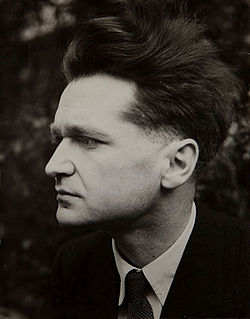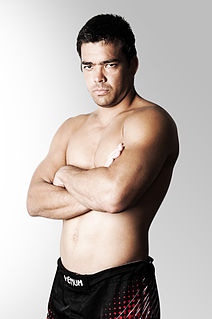A Quote by Emil Cioran
I saw that philosophy had no power to make my life more bearable. Thus I lost my belief in philosophy.
Related Quotes
Philosophy - reduced, as we have seen, to philosophical discourse - develops from this point on in a different atmosphere and environment from that of ancient philosophy. In modern university philosophy, philosophy is obviously no longer a way of life, or a form of life - unless it be the form of life of a professor of philosophy.
One of the things I want to do in the book is to explore how philosophy can be done in literature. I start doing that in the first chapter, by introducing the idea of "philosophy by showing". What literature/philosophy shows is how to look at some important facets of life in a new way, thus changing the frame in which subsequent philosophical argument proceeds.
Philosophy is the science of estimating values. The superiority of any state or substance over another is determined by philosophy. By assigning a position of primary importance to what remains when all that is secondary has been removed, philosophy thus becomes the true index of priority or emphasis in the realm of speculative thought.
In Philosophy, the contemplations of man do either penetrate unto God, or are circumferred to Nature, or are reflected and reverted upon himself. Out of which several inquiries there do arise three knowledges, Divine Philosophy, Natural Philosophy, and Human Philosophy or Humanity. For all things are marked and stamped with this triple character of the power of God, the difference of Nature and the use of Man.
I would say to anybody who thinks that all the problems in philosophy can be translated into empirically verifiable answers - whether it be a Lawrence Krauss thinking that physics is rendering philosophy obsolete or a Sam Harris thinking that neuroscience is rendering moral philosophy obsolete - that it takes an awful lot of philosophy - philosophy of science in the first case, moral philosophy in the second - even to demonstrate the relevance of these empirical sciences.
The adjective "political" in "political philosophy" designates not so much the subject matter as a manner of treatment; from this point of view, I say, "political philosophy" means primarily not the philosophic study of politics, but the political, or popular, treatment of philosophy, or the political introduction to philosophy the attempt to lead qualified citizens, or rather their qualified sons, from the political life to the philosophic life.
I drifted into a career in academic philosophy because I couldn't see anything outside the academy that looked to be anything other than drudgery. But I wouldn't say I 'became a philosopher' until an early mid-life crisis forced me to confront the fact that, while 'philosophy' means 'love of wisdom', and 'wisdom' is the knowledge of how to live well, the analytic philosophy in which I had been trained seemed to have nothing to do with life.
My father was a very tough guy with me and my brothers. He wanted to teach us a lot of discipline and life philosophy. As I became more interested in martial arts, he started teaching a lot of fighting philosophy and karate philosophy. While he was a tough father, he also knew when to be sweet and show a softer side.








































